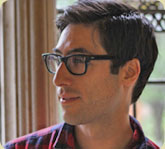YGSNA Member Isaiah Wilner Receives Aboriginal History Article Prize

YGSNA member Isaiah Wilner has received the Canadian Historical Association’s 2014 Aboriginal Essay Prize for his essay, “A Global Potlatch: Identifying the Indigenous Influence on Western Thought.” Awarded by the Aboriginal History Study Group affiliated with the CHA, this prize recognizes an outstanding article publication for the year and was presented at the 2014 annual meeting of the CHA held at Brock University in Ontario.
Published in a special 2013 issue of the American Indian Culture and Research Journal (Vol. 37: 2) edited by Patrick Wolfe on the “Settler Complex,” Wilner’s essay identifies a seminal instance of Indigenous influence on Western thought. It does so by revealing a form of idea power exercised by Indigenous Americans: the power to transmit messages through the medium of people who came to meet and learn from them. In 1894, the Kwakwaka‘wakw people of Vancouver Island, British Columbia, invited the anthropologist Franz Boas to take part in their system of Indigenous governance, the potlatch. At a series of dances and feasts, Kwakwaka‘wakw leaders performed the notion of transformation, offering a dynamic vision of humanity as a single, varied, and constantly changing global community. Guided by an Indigenous intellectual, George Hunt, the Kwakwaka‘wakw, according to Wilner, civilized Boas into a new way of seeing. They turned him away from a static concept of culture, focused on permanent or fixed differences between groups of people, toward a dynamic concept of culture, focused on the universality of global experience—an experience of diversity. To identify such episodes of Indigenous influence, scholars, Wilner contends, must open a new archive—the vast corpus of Indigenous thought and action compiled by anthropologists—and begin writing a truly global history of ideas.
A previous version of this essay was presented at YGSNA workshop prior to publication. Isaiah is currently in Germany researching further Boas’ relationship with Indigenous histories. Congratulations Isaiah.